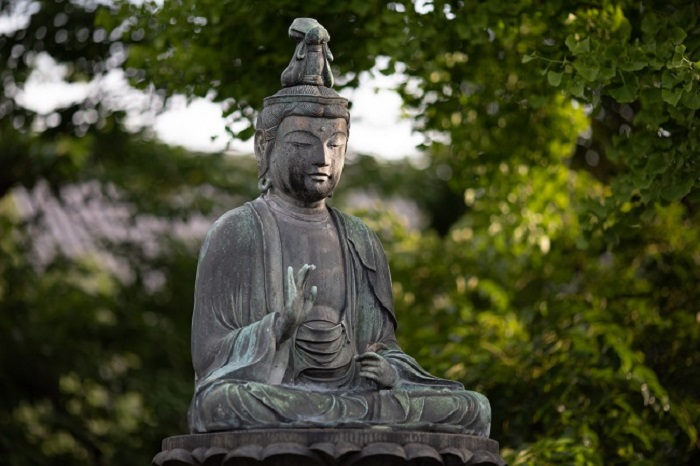Being considerate of others will take your children further in life than any college degree.
– Marian Wright Edelman
Being highly considerate is one of the best skills that you can adopt in life. Realize that highly considerate people have an easier time in life simply because they are likeable! As a result, they have an easier time making friends. They are promoted more quickly in the workplace. And their personal relationships are less fraught with conflict. The good news is that if you adopt certain habits, you can become a highly considerate person.
Of course, we all know who the “inconsiderate” people are in this world. They are the folks who think only of themselves and their own agenda. They’re the type of folks who push their way to get what they want, without regard for others. They fancy themselves to be “Type A” or “go getters,” when, in fact, they are just aggressive and inconsiderate.
Admittedly, being inconsiderate can work for a short time. You can get your way at work, in your marriage and with your friends simply by being pushy – for a little while. But at a certain point, people tire of inconsiderate behavior. And then your job, spouse, and friends inevitably will fall by the wayside because no one will want to deal with you.
So, it’s far better to learn to be considerate! Below are the habits of highly considerate people. Adopt these habits and see how much better your personal and professional relationships become!
Learn to Be a Good Listener
We’ve all been in conversations in which we’ve let our minds wander because we lost interest in what the other person was saying. It’s unfortunate, but it happens. However, if you want to be a highly considerate person, you need to try to be an active listener.
The thing to remember is this: A conversation involves more than just one person imparting information to another person. Rather, in any conversation, the speaker is trying to engage with you on a deeper level. Perhaps the speaker wants positive feedback. Or, maybe he or she is expressing a concern and is seeking sympathy.
If you tune out during a conversation, you are sending the following messages. “You aren’t very interesting.” Or, “I really don’t care about what you are saying.” Even if some of that is true, highly considerate people actively listen anyway!
So, when striving to be a highly considerate person, commit to being an active listener. Don’t daydream when someone is trying to communicate with you. If you give that person your undivided attention, they then will feel respected and cared for.
Show Empathy Toward Others
Part of being highly considerate is having empathy for others. When you have empathy, you are doing more than listening to the other person. You actually are trying to understand that person. In short, you are trying to put yourself in that person’s shoes.
Admittedly, being empathetic is hard! Very often, we just want to judge. “Yes, I know you are in debt, but that’s what happens when you spend more than you earn!” Or, “Yes, I know you have a serious health problem, but that is because you have a terrible diet and drink too much alcohol.” But when we are empathetic, we stop judging and concern ourselves with how someone is feeling.
As a result, when we are empathetic, we instead think, “Wow, that must be very stressful to have financial (or health) problems. I wonder what I can say or do to help?”
Highly considerate people are in the habit of showing empathy by always trying to understand how the other person is feeling. And then they show compassion with words of support, good advice or a helping hand.
Learn to Be Respectful of Other Points of View
The hallmark of emotional maturity is when we are able to be respectful of others, even when we disagree with them. Highly considerate people will treat others with respect, even when they don’t share their point of view.
Unfortunately, many people treat the folks with whom they disagree with disrespect. They’ll insult people who don’t share their point of view. For example, they may say, “Only stupid people buy into religion. It’s completely unscientific.” Or, “If only you were more educated about this political issue, you would see things my way.”
By contrast, highly considerate people behave in an emotionally mature manner. That means that they choose not to insult others, even if they don’t share their views. So, a highly considerate person may say, “Well, I don’t see the world that way, so let’s agree to disagree.” Or, they may simply change the subject rather than go down a conversational path that could lead to a disagreement.
Get in the Habit of Being Helpful
There are three kinds of people in this world. There are those who resist helping even when asked. If you ask them to do anything, whether it be to make a bed or to help wash dishes, they’ll behave in an irritated manner. It’s as if they never grew up.
Then there are those folks who will help – but only when asked. So, they sit on the sidelines, hoping (praying!) that no one will ask them to do anything. That way they can carry on with their lives without interruption.
And then there are the helpful folks. People who are in the habit of being helpful have their antennae up at all times for how they can assist others. If they see someone struggling with grocery bags, they offer to carry them. If they see a family member who is ill or overwhelmed, they offer to take on extra household chores.
The key to being a highly considerate person (and a full-fledged adult) is to become a helpful person. Be on the alert for ways that you can help others. Don’t wait for someone to ask you for help. Often folks won’t ask for help because they don’t want to be a burden. So, offer your help freely and often!
Always Consider the Effect of Your Words and Actions
There are a lot of people in this world who are not concerned with their effect on others. So, they do and say whatever they feel like, without regard for other people. Their agenda is solely to satisfy their own needs. We all know people like this!
But if you want to be a highly considerate person, you have to leave the world of Me, Myself and I. And you have to get into the habit of considering your effect on others every time you do or say something.
I’ll admit that perspective comes easily to some of us. And for others, it’s a struggle. Regardless, it’s a habit that you need to adopt in order to become a more considerate person.
Realize that being considerate requires self-control. That means that you can’t always say whatever pops into your brain. And you can’t do things just because you feel like it. Being a considerate adult means continually assessing how your words and actions are affecting others. And if you are seeking to be a decent human being, your goal should be to have a positive effect on others at all times.
So, if you want to be highly considerate, make sure that you are being careful about how you operate in life. Get in the habit of not just noticing how your behavior affects others, but actually caring about whether you have a negative or positive effect on others.
Get in the Habit of Paying Compliments
An important part of being considerate is noticing when someone does something well, and then telling them! Very often, we may notice someone do something well, but then we mistakenly keep that thought to ourselves.
The most wonderful thing that you can do for another person’s confidence is to pay them a compliment. So, compliment freely and often! Compliments can range from recognizing big things, like a job well done. Or they simply can be about small things, like noting that someone is wearing a nice outfit.
Considerate people compliment others often because they are on the alert for how they can encourage others. Realize that if someone looks sad or discouraged, paying a compliment can turn that person’s day around.
In fact, a compliment can change a life. For instance, when I was in high school, my senior year English teacher paid me a compliment about my writing. No teacher had ever done that before. That single compliment gave me the confidence to think that I had the ability to write well. I’ve lived on that compliment for decades at this point!
So, be highly considerate by paying attention to the folks around you. Notice when they do something well. And then take the next step a pay them a compliment!
Say “Thank You” Often
Highly considerate people notice when others do things for them. And then they express their appreciation.
Unfortunately, many people take the help that they receive for granted. So often, folks feel like they are “owed” something. For instance, I know lots of kids who think that their parents owe them a college education. Or an extravagant wedding. Or the down payment on their first home. And there are parents who think that their kids owe them their time, attention and resources in their golden years.
Now, don’t get me wrong. I think helping others is a good thing! For example, my husband and I are paying for my daughter’s college education. And we’re doing it gladly! She is a straight A student and has an exceptional work ethic. We both agree that she is a good investment! But we don’t owe her a college education. That’s a gift that we’ve decided to give her.
Similarly, when my mother was elderly, I helped her, visited her and ensured that she had a nice place to live and was well-cared for. But I didn’t owe her that. My efforts were my gift to her.
So, when others do things for us, we need to be mindful that we aren’t owed anything in life. Whenever someone does something for us, it’s a gift. Highly considerate people recognize that. And they are in the habit of saying thank you often because they “get it.” They understand that when others do something for them, it’s a gift.
Be Quick to Apologize
Highly considerate people are mindful of their effect on others. And they care about whether their actions have negatively impacted another person. As a result, they are quick to apologize if they hurt someone’s feelings or have created a problem for another person.
So often, we go through life and think that if we are in a close relationship with someone, we don’t have to apologize. In fact, there was a very popular film in the 70s called “Love Story.” At the end of the film, the lead character says, “Love means not ever having to say you’re sorry.” It was meant to be a very poignant end to the film, but frankly, the line is profoundly stupid. It’s just the opposite. Love means that you should be saying sorry every time you hurt the feelings of someone you love, either intentionally or accidentally.
Often, we don’t apologize because we’re insecure. We think that if we apologize and acknowledge that we were rude, hurtful or unkind, then we are admitting that we’re flawed. Well, here’s a news flash. We’re all flawed! We all make mistakes and do dumb things. So, it’s better to just own up to your imperfection, apologize, and have better relationships with other people.
So, when learning to be a highly considerate person, adopt the habit of readily apologizing for your mistakes. Be on the lookout for when you’ve either done something wrong or hurt another person’s feelings. And then be confident enough to acknowledge your errors.
Respect Other People’s Time
One of the most important ways that you can be considerate toward others is to respect their time. There are a multitude of ways that we waste the time of others. One way we fail to respect other people’s time is by being late to appointments or get-togethers. Or, we may ask people to do tasks that we could do ourselves.
Everyone has things that they need to accomplish during the day. So, it’s important to be highly respectful of other people’s time. So, if you are a professional, be on time to your appointments with clients and colleagues. Similarly, if you are casually meeting a friend for lunch or tea, show your friend respect by arriving on time.
And don’t ask other people to do things that you can do yourself. If there were two words that I would eliminate from the English language, it would be these: “Can you…” If you need something to be done, do it yourself, or hire a professional to do it for you. But don’t waste other people’s time with your tasks.
Highly considerate people make it a rule never to impose on others. Instead, they make it a habit to be on time, manage their affairs and not waste the time of others.
Be Neat and Tidy at Work and at Home
Considerate people are neat and tidy simply because they don’t want to inconvenience others with their mess. Realize that if you don’t make your bed, if you leave dirty dishes in the sink, and if you otherwise don’t clean up after yourself, you are being inconsiderate to the people in your household. And if you have a messy office or workspace, you’re being inconsiderate to your colleagues. Because no one wants to look at your mess!
The reality is that it doesn’t take a lot of time to be a neat and tidy person. A bed can be made in less than two minutes. Dinner dishes can be washed in less than 10 minutes. Laundry can be folded and put away in less than 15 minutes. So, no one is too busy to be tidy.
Tidiness and cleanliness are all about having good personal habits. And they are about being considerate and not inflicting your mess on other people.
The reality is that we all can go through life thinking only about me, myself and I. There isn’t a law against that. But if you are seeking to become a more considerate person, start holding hold yourself to a higher standard. Adopt the habits of highly considerate people. Not only will you feel better about yourself, but your relationships with others improve immensely! (To read about how to be a more helpful person, click here.)








